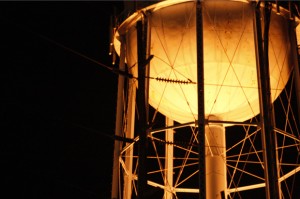OK’s Largest Water Loan Goes to Norman to Fix Stressed, Stinky Treatment Plant
-
Logan Layden
The Oklahoma Water Resources Board uses the state’s good credit to secure loans for communities and rural water districts that need help paying for expensive upgrades to their water systems.
And at its regular monthly meeting on Tuesday, the board approved a $50.3 million loan to the Norman in what Joe Freeman, chief of OWRB’s financial assistance division, calls the “largest single loan request” it’s ever acted on.
The money will be used to expand capacity at Norman’s wastewater reclamation facility from 12 million gallons per day to 16 million.
Norman’s number of water and sewer connections have increased by more than 18 percent over the past decade, putting too much pressure on the current wastewater plant, leading to an unpleasant odor and consent order from the Oklahoma Department of Environmental Quality.
Norman Utilities Director Ken Komiske told the board his city’s residents support the $1.10 per thousand gallons rate increase the loan necessitates.
“We’re the only city in the state that requires our citizens to vote on their rates,” Komiske says. “And so to make sure we can pay back this loan, we got a 76 percent approval rating on our vote in November. So, we’re ready to proceed.”
The money will come from the Clean Water State Revolving Fund, which, as StateImpact has reported, is vital to securing the estimated $52 billion in water system improvements needed across Oklahoma over the next half-century.
A single loan as large as the one Norman is getting might not have been as feasible prior to 2012, when Oklahoma voters approved a large expansion of OWRB’s financial assistance programs. From StateImpact’s December 2012 report:
State Question 764 passed on Election Day by a 14-point margin. It allows the state to back up loans with up to $300 million of the state’s credit. Strong says that will make all the difference.
“This would take us from being able to leverage $2 to $300 million in any one given year to $3 billion in any one given year,” Strong says.

